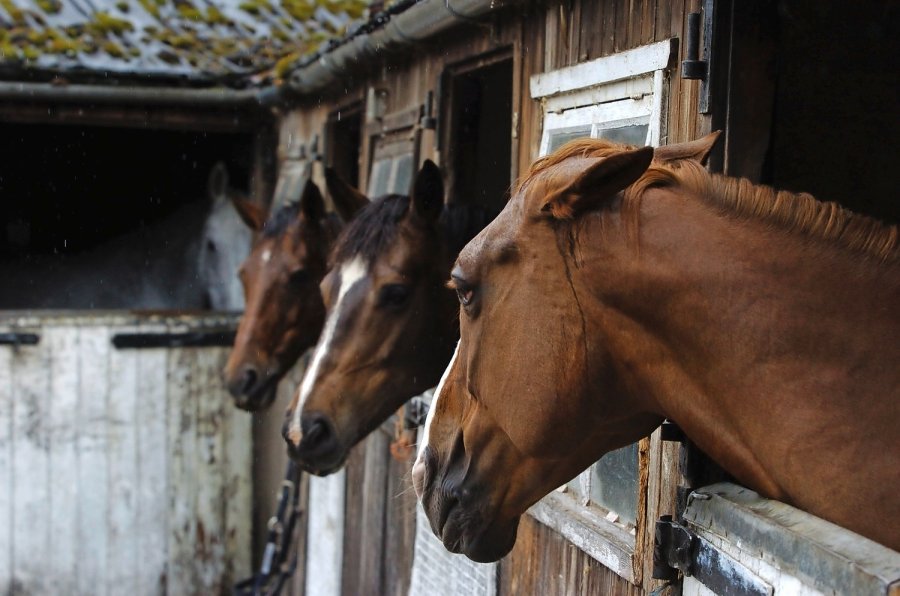We asked horse behaviour expert Sarah Clark what to do about a horse who snaps the air when he’s upset. Particularly when other horses walk past his stable.
A: From what you describe your horse could be showing a less common type of ‘STP’ (stereotypic behaviour pattern). Ordinarily known as a ‘stable vice’, a STP can be a sign that there’s something specific in his environment making him feel stressed, anxious, frustrated or even excited.
Without knowing about his environment or his history it’s hard to diagnose exactly but it is also possible he’s ‘foal snapping’. However this is rarely seen in adult horses.
Foals do this as part of natural ‘Equine etiquette’ when they’re learning from other horses. It’s a submissive gesture, which roughly translated means “I’m respecting that you’re older” or “I’m still learning”. Occasionally they don’t grow out of it.
It can be a challenge but try to find the specific trigger for his behaviour. This is key to stopping it from happening.
From what you describe, his behaviour is likely to have a ‘social’ motive. Wanting a horse to keep their distance, or wanting to be with others, are just two possibilities.
1. Get him away from the stable
Can he spend more time at liberty, i.e. away from his stable? As a naturally sociable, grazing herbivore, this can really help.
2. Change his feeding spot
Is it possible for other horses to use an alternate route? If not, you could try feeding him toward the rear of his stable at times when others are likely to pass by.
3. Try to understand the reasons why
By performing a STP, the horse actually calms itself. It’s similar to when a person taps their foot or bites their nails. As horse lovers we don’t ideally want to see these behaviours, but the repetitive action of a STP helps at least to relax the horse.
Physically preventing STP’s (such as using crib collars or weave grills) can actually cause more stress to the horse. So, if making changes to his environment is impossible, at least you know he may be self-calming by doing this.
If still concerned it’s safest to seek long-term advice. Find a local SEBC professional at









